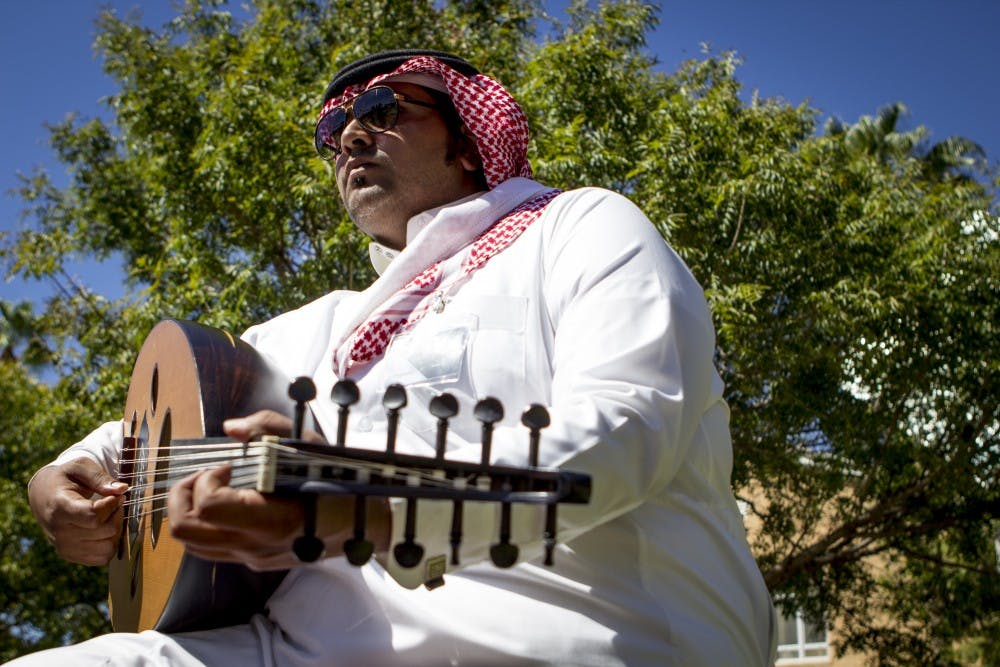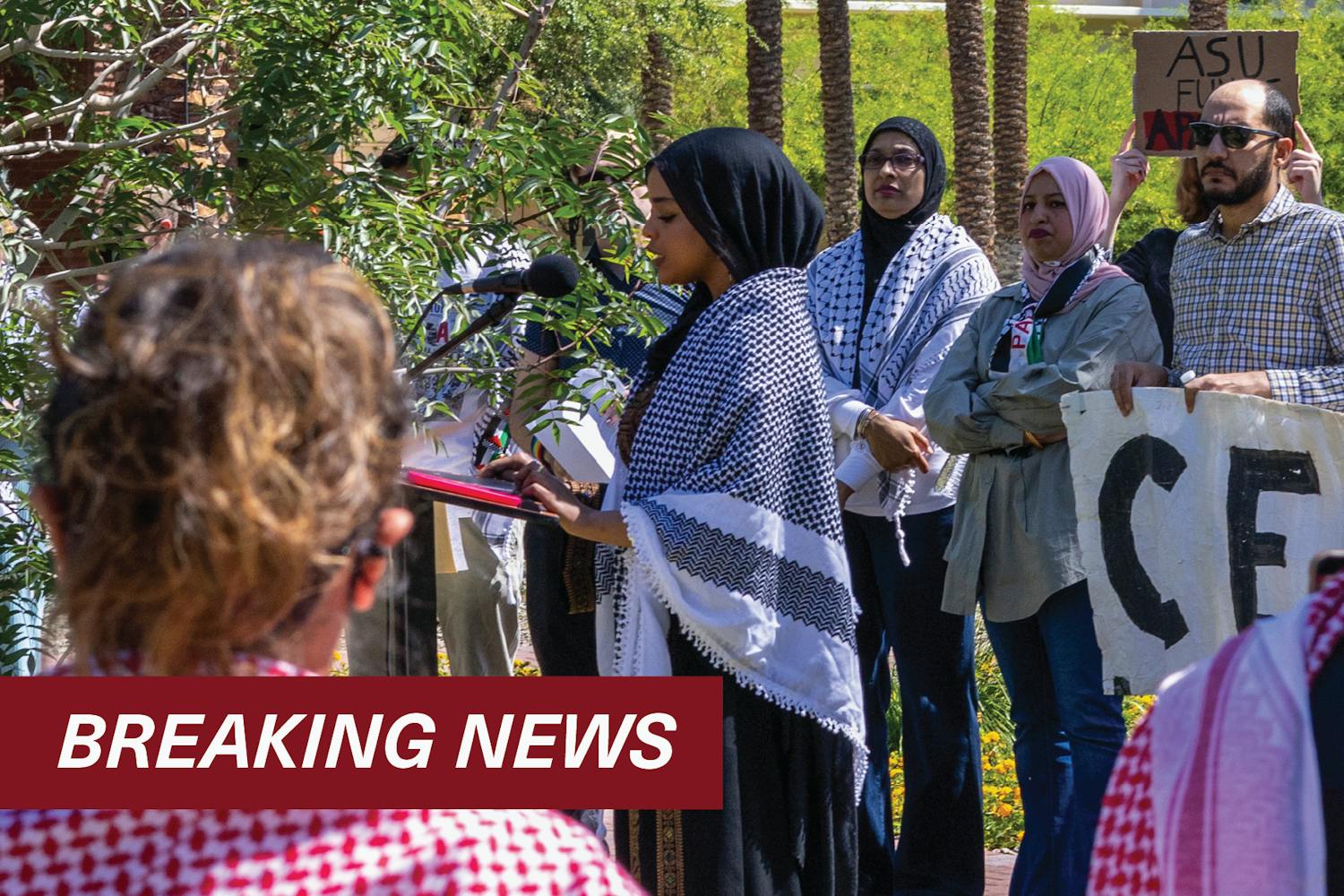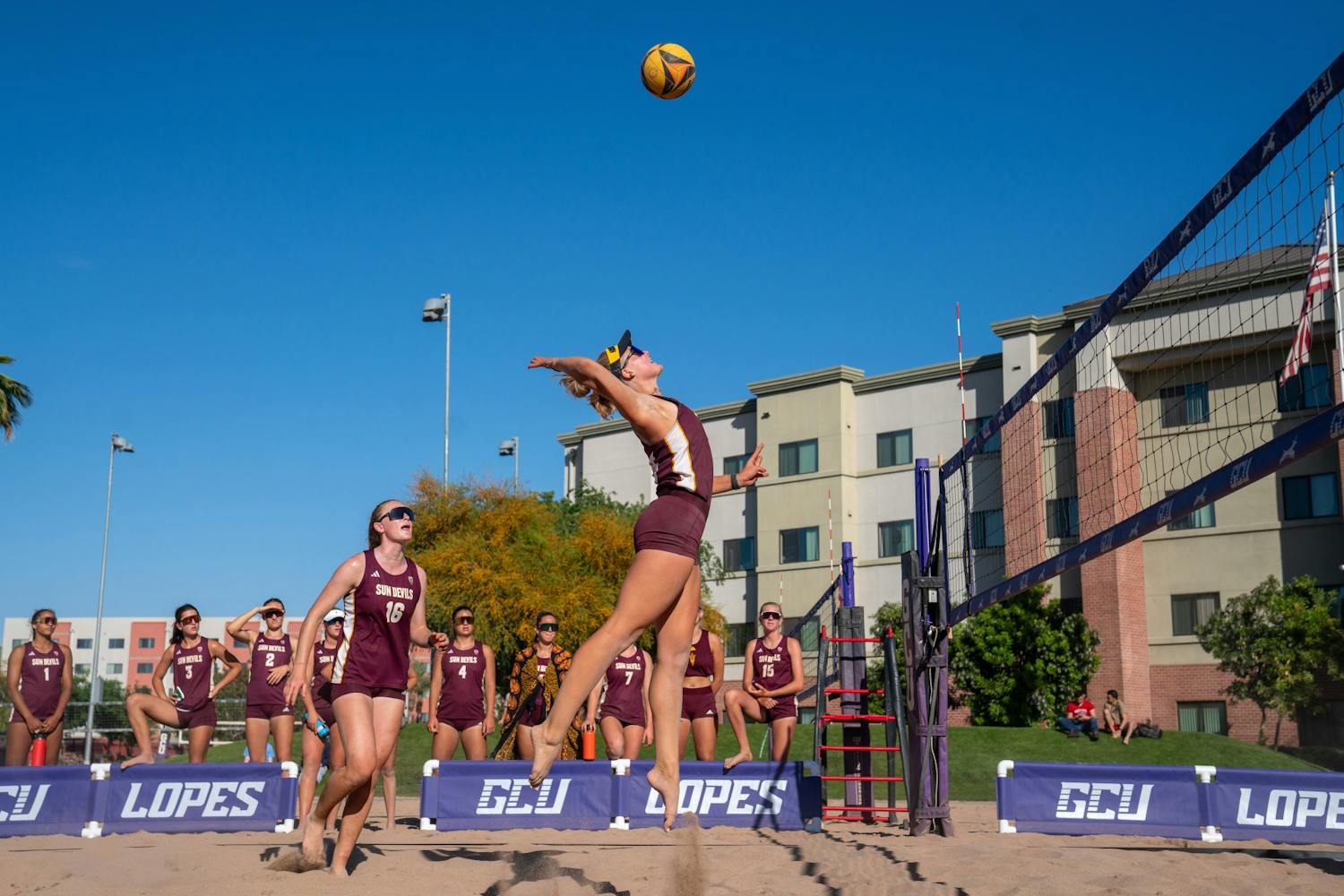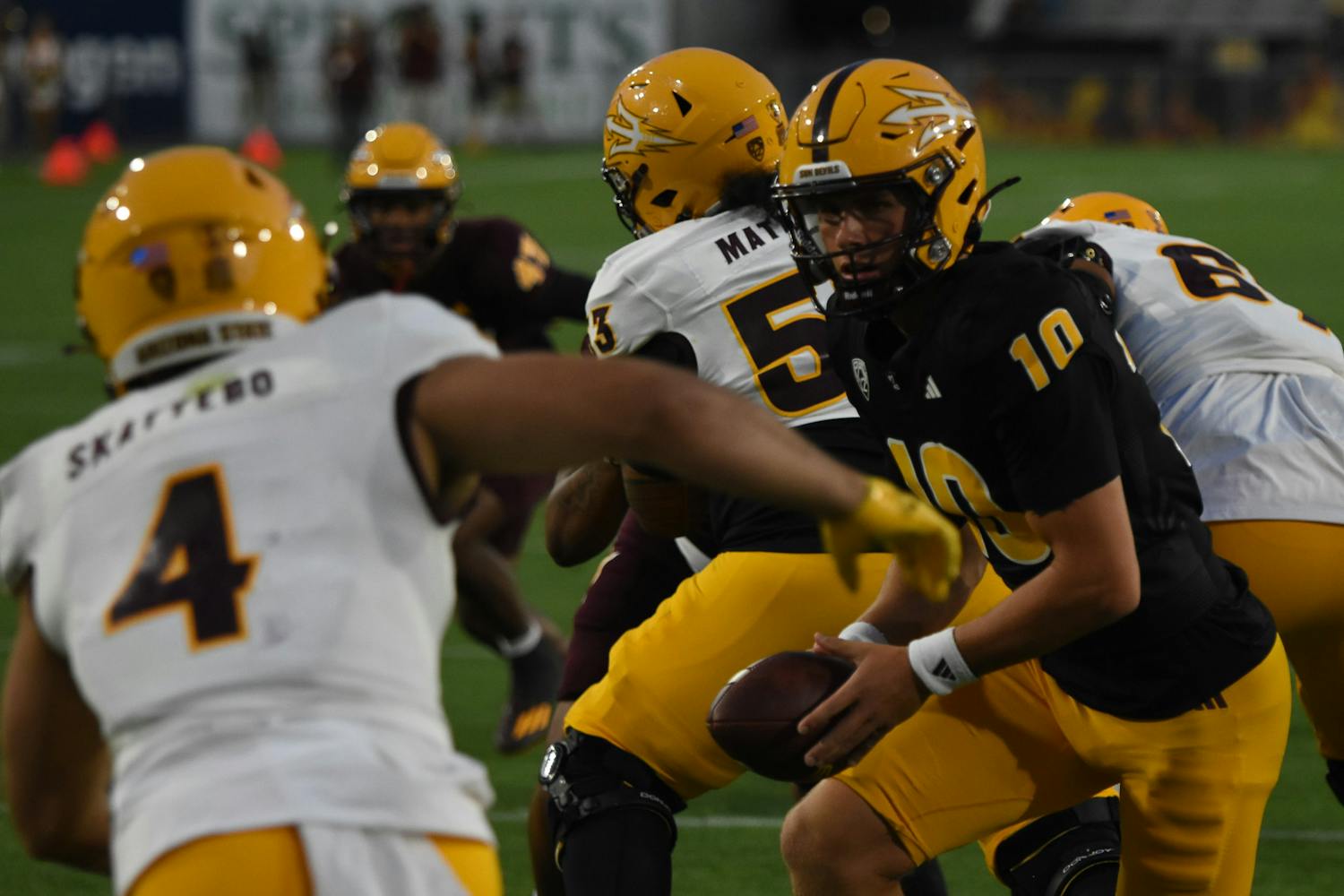Children in colorful embroidered robes twirled and ran about on Hayden Lawn on Monday afternoon, scampering around a group of students in varying degrees of traditional Saudi clothing.
The students and other local residents were out on the lawn to commemorate the 83rd anniversary of Saudi Arabia's establishment and share their culture with their peers, said industrial engineering junior Ebrahim Hosen Tarabolsy, the president of the Saudi Students Club at ASU and one of the event's organizers.
"We believe in Saudi that our mission here in the U.S. is not only for studying, but to share our culture and correct mistaken ideas people have about Saudi and Islam," he said.
To this end, booths around the lawn provided information about Islam, the advancement of women in Saudi Arabia and education in the country.
The students staffing each booth came from different areas of Saudi Arabia and had different experiences growing up. Tarabolsy said he grew up watching American movies and tuning into the sitcom "Friends" each night, but other students had different backgrounds.
"There are five areas of Saudi Arabia, so they have different perspectives," he said.
Katie Curiel, the study abroad program coordinator who serves as the club's adviser, said Saudi students are the third largest group of international students at the University.
Most are studying at ASU through the King Abdullah Scholarship Program, which has funded thousands of Saudi citizens at western universities since it began in 2005. These students will return to Saudi Arabia to live and work upon receiving their degrees.
ASU students can't study abroad in Saudi Arabia, Curiel said, but they can travel to the neighboring United Arab Emirates and still have the opportunity to work with Saudi peers in the American English and Culture Program, which partners international students with others who can help them acclimate to the language.
"It's important for students who are here to be proud and expose their culture and also for them to help other students learn about it," Curiel said.
The festival was one way to help deepen the public's understanding of the Saudi culture and religion, even by showing something as simple as the traditional clothes worn by most of the students, she said.
Most of the male students were dressed in white ankle-length shirts known as thobs and wore hats made of wrapped fabric on their heads. Many of the women present wore flowing dresses ornamented with sequins and some form of headscarf. These ranged from covering just the woman's hair to all but her eyes, and some female students chose not to wear scarves.
Communication graduate student Haya Alkhamis was wearing full sleeves and a long skirt with her scarf but said she would have dressed in a traditional black abaya, or cloak, at home in Saudi Arabia because of the country's Muslim religious practices.
"My religion wants to decrease rape and other crimes," she said. "We don't have to show things for men."
Alkhamis spent the afternoon talking to interested visitors about women's advancement in Saudi Arabia, especially in the realm of education. Nearly half the working women in the country have received some college education now, while just 2 percent of Saudi women were literate in 1970.
She shocked some passers-by by explaining how women were not allowed to drive in Saudi Arabia, but that she hasn't wanted to learn while living in the U.S. Overall, Alkhamis said she wanted to help show fellow students her culture so they could learn about it.
"I want them to accept me," she said. "I want them to think of me not because of the way I look or how I dress but because of my personality."
Special education junior Marie Warnert, who visited Hayden Lawn with a class she was student teaching, said she learned a lot from the exhibits she perused.
"It's cool," she said. "I like it a lot, and it's definitely really informative. I was surprised to find out that not all Muslims are Arabs."
The students she was there with enjoyed some of the more interactive booths, including one that provided henna tattoos and another that allowed visitors to don traditional gear and pose for pictures in a tent.
Supply chain management freshman Reema Alhuwaider said the event was able to introduce Saudi culture, music and history to other students.
"It's important to learn about other cultures, because to know about them is to know how they live, how they eat, how they do everything," she said.
Reach the managing editor at julia.shumway@asu.edu or follow @JMShumway on Twitter.
Like The State Press on Facebook and follow @statepress on Twitter.




